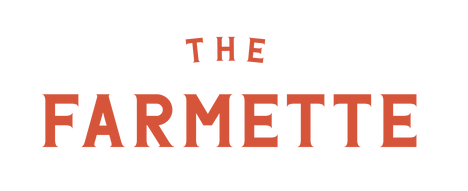
It’s time to change your diet
Would you use fuel that is out of your car’s suggested octane range? Or would you rather have your car run on the recommended octane fuel that will keep its health optimum?
Of course, you would make the wiser choice of using the recommended fuel. You would not want to feed your car the things that might harm it, right? Replacing the car in the analogy with your body, you’d make the same choice of a healthy diet. But what is a healthy diet?
A healthy diet is balanced and has a variety of foods. A balanced diet would meet your body's nutritional needs without compromising on health in any other way. Many people follow omnivorous diet plans, while others prefer veganism or vegetarianism. Vegetarianism does not include a major protein source (meat), which births the question: “Is vegetarianism healthy?" Surprisingly, yes, vegetarianism is healthy; it might even be healthier than meat-based diets in some cases.
Vegetarian/Vegan diets are more than just boiled broccoli on a plate; they’re diverse, creative, and colorful and can be balanced. Fruits and vegetables provide a good amount of minerals and vitamins along with carbohydrates, while nuts take care of your healthy fat intake. Since the major concern is protein, legumes, and other vegetables got you covered in that area too. For example, Broccoli provides more protein per calorie than steak, while spinach gives protein (per calorie) equal to chicken and fish. Since vegetarian diets have higher water content, and you feel full because of fewer calories, they help in weight loss too.
It’s a well-known fact that meat is dense in bad fats, which one should avoid. Moreover, recent studies have implied correlations between meat consumption and cancer risk. About 35% of cancer risk can be attributed to diets, emphasizing the need to have a balanced and healthy diet. Avoiding red meat can help reduce the risk of cancer of many organs including the colon and rectum, lung, pancreas, esophagus, and liver. A Vegetarian/vegan diet provides a refuge from this threat of cancer. Winning another point for a vegetarian diet, many vegetables have anti-carcinogens that further reduce the risk of cancer.
The benefits of vegetarian/vegan diets aren’t limited to the personal domain. These diet plans contribute to significant positive environmental changes. Resorting to a vegetarian/vegan diet means indirectly discouraging the cruel animal breeding practices, use of growth hormones and antibiotics. It results in a reduction of greenhouse gases (and carbon emissions) too. If you abstain from meat for one year, you could prevent emissions equal to the one produced by a small car in 6 months. Moreover, producing one kilogram of meat requires 100 times more (volume of) water compared to water volume required by one kilogram of wheat production. With increasing water scarcity, who wouldn’t want to prevent water wastage by opting for a vegetarian diet?
Although a vegetarian diet has a lot of health benefits, one must take care to ensure their consumption is healthy and balanced too and avoid common mistakes. For example, A diet consisting of potatoes alone might be vegan/vegetarian, but it might not qualify as healthy.
Making a switch can be a daunting task, but it doesn’t have to be a one-day process. You can make small changes and gradually make your diet healthy. Starting small by adding more fruits and vegetables to your plate is a great step. There is always room for betterment, and this time you can make your lifestyle, diet, and environment better!
Leave a comment